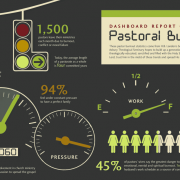Intentionally Limiting…
I love living in the day and age in which we live. We have immediate access to information and I love information! Let’s be honest, I am an information junkie. Growing up in a heavily technological age and then with the internet coming onto the scene, I feel that I have lived my entire life on information overload.
God has been doing much in my heart and life lately. Things like quietness, solitude and simplicity have been at the fore of my heart and mind. I find God is continually simplifying and refining my life. But as God has been stirring my heart for simplicity, I have begun to realize something about all of this information. When you have access to everything, you end up being an inch deep and mile wide. Let me explain it to you. Back in times before there was unlimited access to information, people got to go down deep with just a few things. Instead of scavenging everywhere in unlimited fields, people knew one field very well. Today it is not so. For most people (including myself), we have such access to information that we rarely ever connect to the ethos of few things. Now don’t get me wrong, I am not making a moral judgment about this. Instead I am trying to articulate that the sword cuts both ways, in some ways amazing and in other ways limiting.
Let me give you some personal examples. When I first got into listening to jazz, I owned 3 jazz albums (Miles Davis – Kind of Blue, John Coltrane – A Love Supreme & Bill Evans – Sunday at the Village Vanguard). I listened to those albums over and over and over again for the better part of a year. Even to this day, I can sing many of the solos on every one of these albums. I soaked myself in them and they became part of who I am. But then the world of unlimited music kicked in. Before I knew it, I owned thousands of albums. I grazed in each field but never truly got to know any of those fields nor internalized the music.
Fast forward to my conversion. I had a Bible and I devoured it. Someone gave me a copy of JI Packer’s Knowing God and Andrew Murray’s Humility (I think they were trying to tell me something ;-). I devoured those books. Read them over and over and over again. But in the same way, ultimately the world of Christian books opened to me. Now thousands of titles later (in print, e-book, and on various computer programs), I find myself an inch deep and a mile wide with everything. I imagine that many of you are like me. You get a new book (or album), you read a bit of it and then you never finish it. You get going, you get distracted reading something else and then you put it down.
So I decided to take action and intentionally limit my reading. I decided that I was going to focus on a few authors for the entire year. I decided that I was going to spend an entire year with Eugene Peterson, Abraham Heschel, Henri Nouwen and John Stott. I have to be honest, it has been a total blast! I feel like I am soaking in these men’s writings in a much more special way than just grazing. By making an intentional decision to soak rather than graze, I find myself being shaped in new and different ways.
So my question would be this, “If you were to chose four authors to focus on this year, who would they be and why?” I’m not saying your ‘Desert Island Authors’. But those who would be nourishing your soul specifically right now and why. I am also assuming that you would be reading the Word of God.
Blessings











